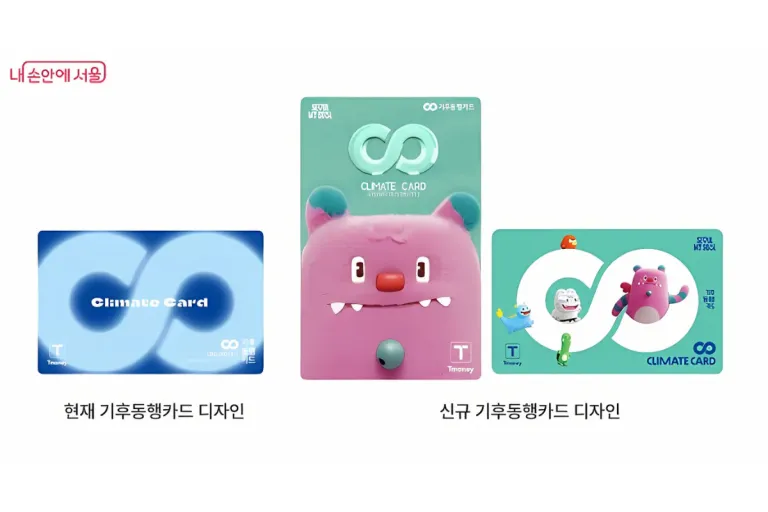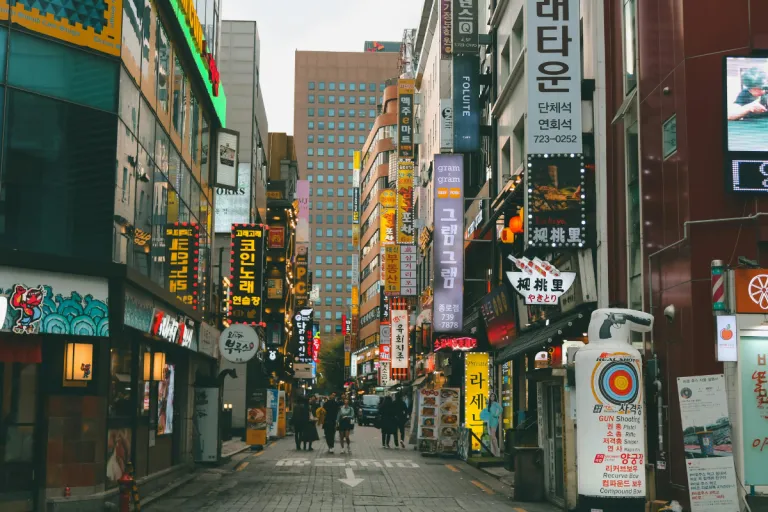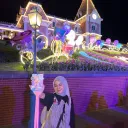Traveling abroad just to see your favorite idol perform is the ultimate fan goal
T-money vs. Climate Card in South Korea: Which Transit Pass Should Muslim Travellers Choose?
When exploring South Korea, efficient and affordable public transportation is a must especially for Muslim travellers looking to maximise their budget while navigating from halal eateries to mosques, scenic spots, and shopping districts. But with several transit options available, many visitors wonder: Should I get a T-money card or a Climate Card?
Here’s a breakdown of both to help Muslim travellers decide which one suits their itinerary best.
What is the T-money Card?
 Image credit: dreamymegane | Official Website
Image credit: dreamymegane | Official Website
The T-money card is South Korea’s most versatile reloadable transportation card. It’s widely accepted across the country, not just in Seoul, but also in major cities like Busan, Incheon, Jeju, and Daegu.
This card can be used on Subways, city buses, taxis and even in AREX (airport express train) and some intercity buses. In addition, small purchases at convenience stores, vending machines, and select attractions also support T-Money.
 Image credit: chrisinthai | Canva Pro
Image credit: chrisinthai | Canva Pro
Card cost: Around KRW 3,000–5,000 (plus top-up)
Coverage: Nationwide – perfect for intercity travel
Bonus: Can be used in taxis and some retail shops
Discount: Offers small fare discounts (~KRW 100) on subway and bus rides
Refundable: Yes, balance can be refunded (minus a KRW 500 fee), though the card itself is typically non-refundable
For Muslim travellers planning to move between cities or explore beyond Seoul, such as heading to Jeonju’s Hanok Village, Busan’s halal-friendly beaches, or Incheon’s Chinatown, the T-money card offers maximum flexibility. Plus, it works on the AREX train from Incheon Airport, making it convenient for international arrivals.
What is the Climate Card?
 Image credit: SMG | Official Website
Image credit: SMG | Official Website
Launched as part of Seoul’s green initiative in 2024, the Climate Card (기후동행카드) is a flat-rate, unlimited ride pass valid only within Seoul’s public transport network.
Think of it like a buffet: unlimited subway and bus rides within the city during your card’s validity.
Types of Climate Card:
Monthly Passes:
KRW 62,000 – Seoul buses and subways
KRW 65,000 – Includes unlimited rides on Seoul’s public bike-sharing system (Ttareungi)
Tourist Passes (short-term use):
1-day: KRW 5,000
3-day: KRW 10,000
5-day: KRW 15,000
7-day: KRW 20,000
(Note: bike access not included in tourist passes)
Coverage:
Seoul subways (Lines 1–9 and most commuter lines)
Seoul-licensed city buses
Optional: Seoul’s public bikes (Ttareungi)
🚫 Not Valid On:
Airport buses or AREX boarding from Incheon Airport
Shinbundang Line
Suburban or regional buses outside Seoul
 Image credit: Khoa Nguyen | Canva Pro
Image credit: Khoa Nguyen | Canva Pro
Ideal for Muslim travellers staying exclusively in Seoul, especially those planning multiple trips per day, whether it’s halal food hunts in Itaewon, mosque visits in Yeoksam, or sightseeing at Gyeongbokgung Palace, Myeongdong, and Dongdaemun.
HalalZilla tip: The Climate Card also comes with occasional discounts at Seoul parks and attractions.
Final thoughts
For Muslim travellers in South Korea, choosing the right card depends on your itinerary and travel habits. The T-money card is ideal for multi-city adventures, hopping between Seoul and Busan, or seeking out halal restaurants and mosques in lesser-known areas.
The Climate Card, on the other hand, is perfect for those staying within Seoul and using public transport heavily, as it offers great savings and peace of mind, especially for families or long-stay visitors.
Published at
About Author
Aimi Zulkiflee
Subscribe our Newsletter
Get our weekly tips and travel news!
Recommended Articles
10 Best Hotels Near Goyang Stadium: A Guide for K-Pop Fans Heading to South Korea! 10 Practical Travel Kits: A Must-Have For Muslim Travellers Save this into your list now ~
10 Real-Life Anime Locations Every Muslim Otaku Fan Must Visit The fact that Japan look like anime in real life, mindblowing!
13 Best Places to See Cherry Blossoms During Spring Break in Taiwan Just to bless your Instagram highlights!
Muslim Travel Guide to Ladakh: 9 Must-Visit Spots From The Movie 3 Idiots Leh has more than just halal foods and mosque!
Latest Articles
Mt. Fuji’s Iconic Cherry Blossom Festival Canceled for 2026: Essential Updates for Travelers Overtourism and tourists misconduct are the reasons behind this decision.
Seoul’s Majestic Palaces Open Their Gates for Free This Mid-February Plan your budget-friendly trip now!
9 Most Instagrammable Cherry Blossom Spots in Jeju: Your 2026 Spring Guide Ready to experience Jeju’s spring in full bloom?
Best Places to Stay in Kyoto 2026 : 10 Best Ryokan Hotels with Traditional Japanese Style the ultimate way to feel Kyoto’s old-world charm
Taiwan Cherry Blossom Guide 2026: Top 10 Spots, Forecast, & Hot Springs cherry blossom season is back!

